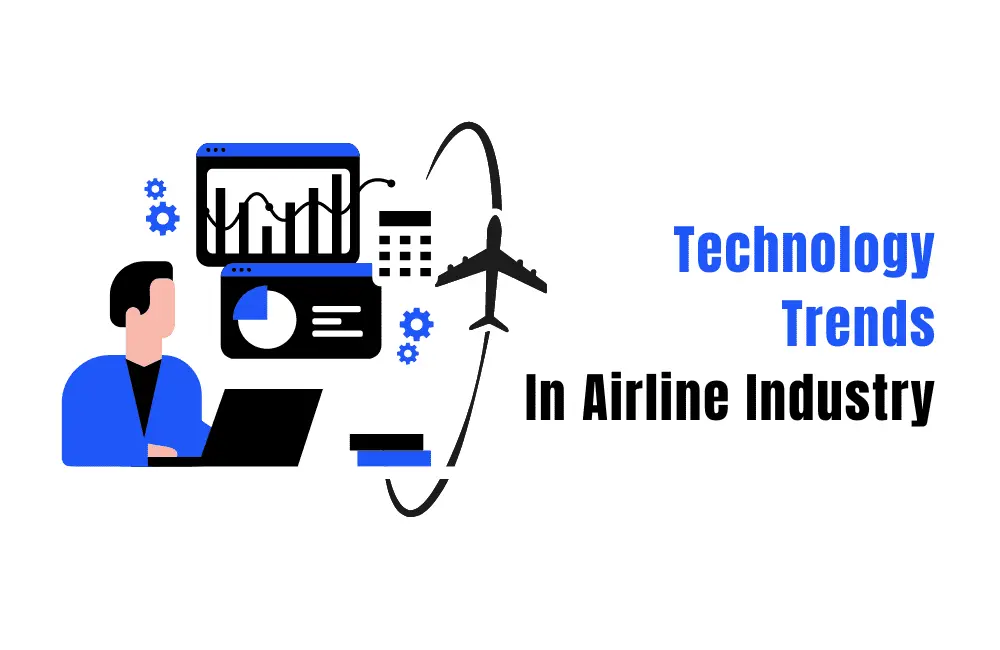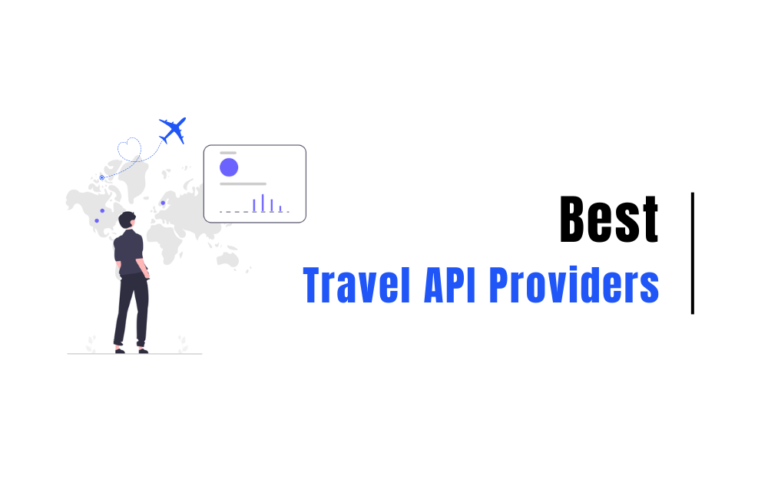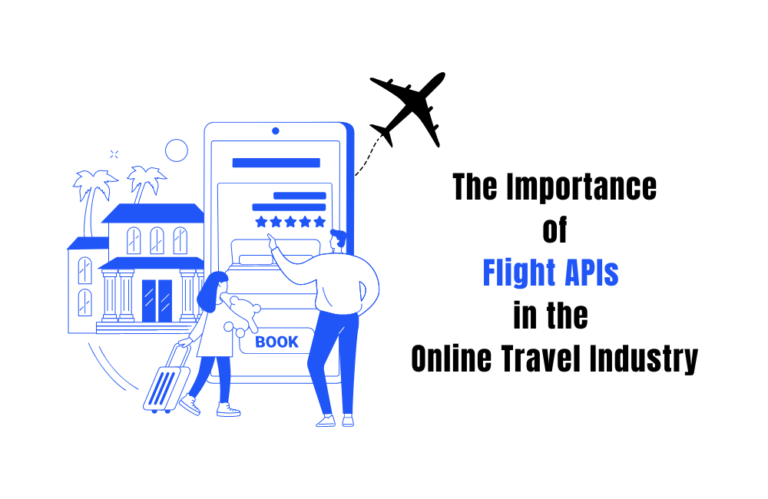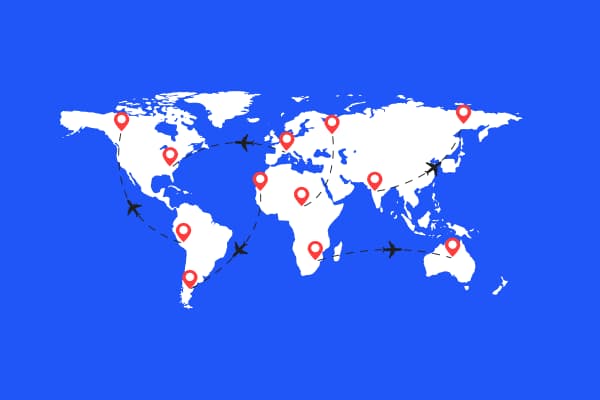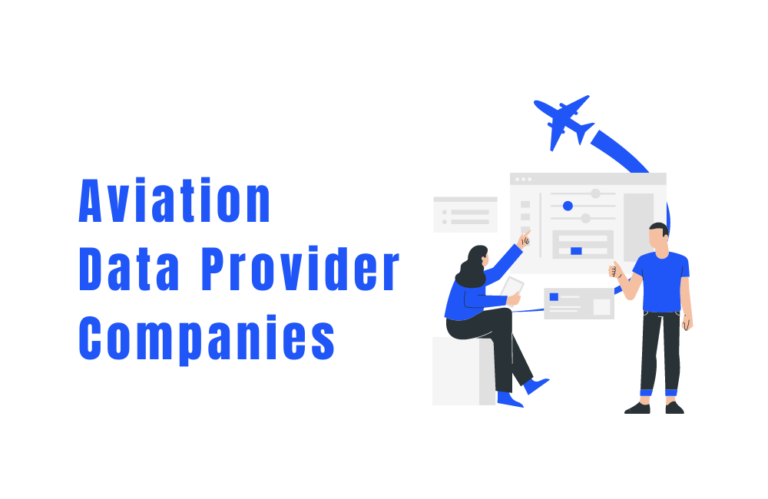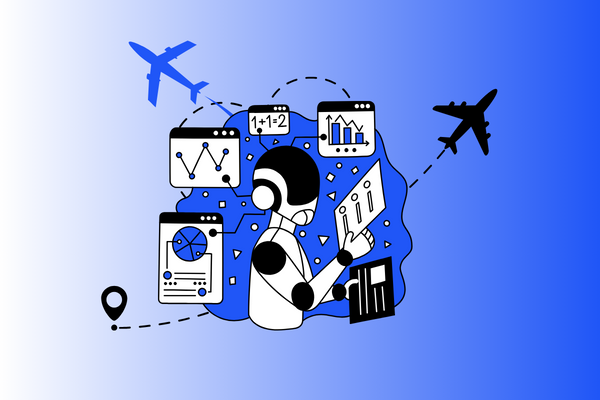Top 7 Technology Trends in Airline Industry
The airline industry has seen its fair share of turbulence in 2020, which marked the most challenging year ever, as passenger numbers plunged by a jaw-dropping 557 million – that’s a 40% drop compared to 2019. But, fear not, now the airline industry is now ascending to new heights.
With revenues taking off to $194.7 billion in 2021 and skyrocketing further to an impressive $206.3 billion in 2022, there’s never been a more exhilarating time to be in the airline business.
If you’re into the airline or travel business or a professional whose responsibility is to take revenue to new heights. This blog is for you!
In this blog, we’re spilling the beans on the what are the new trends in the airline industry that will help your airline or travel business to take off.
Let’s get started!
Explore The Top 7 Innovative Technology Trends in the Airline Industry
1. Data Analytics
Data analytics has always been a critical component of business intelligence in the airline industry which drives efficiency, customer satisfaction, and profitability. Today, it’s even more accessible and affordable, thanks to APIs like flight price, flight status, and airport data.
Let’s dive deeper into how each Flight API type can be useful for airlines.
Flight Price API revolutionizes competitive pricing analysis which is a vital aspect of airline marketing trends that enables airlines to easily monitor competitor fares and make informed pricing strategies. This tool eliminates time-consuming manual methods and ensures accuracy.
To see how easy it is to use FlightAPI for retrieving flight prices, check out the tutorial.
Flight Status API keeps track of real-time flight locations, offering valuable insights for airlines to optimize their operations. This can lead to better aircraft utilization, efficient crew management, and enhanced customer service.
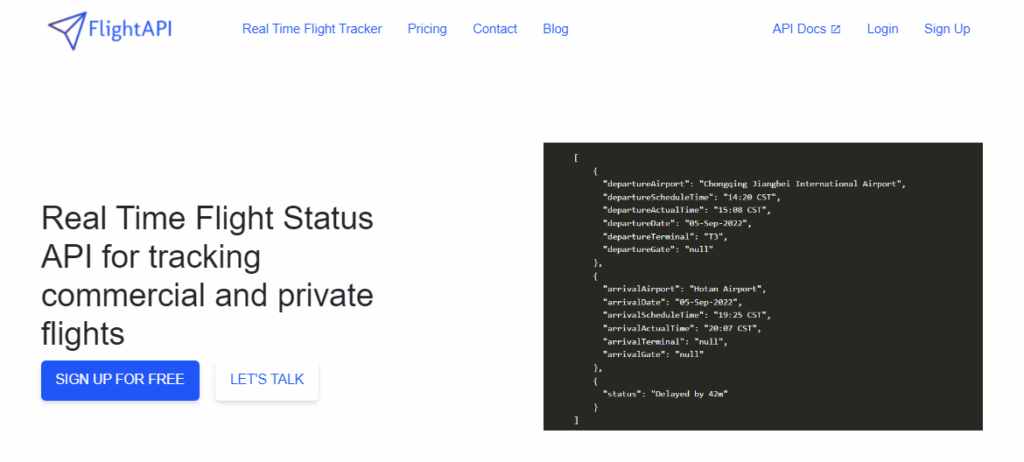
Airport Schedule API delivers a comprehensive schedule for any airport, including detailed arrival and departure dates. It allows the retrieval of flight schedules either separately or together, based on user preference.
Airlines should embrace these flight APIs to maximize the benefits data analytics has to offer. By staying informed and adapting quickly to market changes, airlines can maintain a competitive edge and secure long-term success.
2. Artificial Intelligence and Machine Learning
AI and ML are revolutionizing the airline industry, optimizing operations, reducing costs, and enhancing customer experiences.
By analyzing vast amounts of data, AI accurately forecasts passenger and cargo demand, enabling airlines to optimize flight schedules, pricing, and resource allocation.
Machine learning models identify patterns and trends to improve marketing efforts and personalize customer interactions.
Furthermore, AI-powered chatbots provide 24/7 customer support, addressing inquiries and resolving issues quickly.
Embracing AI and ML allows airlines to elevate their businesses to new heights, driving efficiency, innovation, and customer satisfaction in the competitive aviation landscape.
3. IoT and Cloud Technology
IoT, cloud computing & telephony trends in the airline industry are driving remarkable advancements. As aviation moves to the cloud, it not only reduces its carbon footprint but also unlocks numerous benefits.
Cloud-based networks serve as the backbone for countless IoT-enabled devices, streamlining passenger check-in and boarding processes while enhancing security. Moreover, airports harness the power of IoT for cost savings, such as employing sensor-based PoE lighting to boost efficiency.
By embracing IoT and cloud computing, the airline industry can unlock unprecedented levels of innovation, automation, and sustainability, redefining the future of air travel and airport operations.
To simpliy & make process more efficient the role of cloud management platform in this ecosystem is indispensable. It offers a centralized solution to manage the vast array of cloud services and IoT applications.
4. Personalization
In the era of digital marketing, the airline industry is evolving to meet travelers growing demand for personalized experiences. Delta Air Lines Delta Sync, revealed at CES 2023, exemplifies the personalization trend with its unique ecosystem of digital services and experiences. However, other airlines are also stepping up their game.
For instance, Singapore Airlines KrisWorld’s entertainment system curates content based on passenger’s preferences and flight history. Meanwhile, Emirates provides region-specific cuisine and allows passengers to create their own playlists before boarding.
These airlines, along with others, harness customer data and technology to enhance various touchpoints, from tailored inflight entertainment and food options to exclusive partnerships with top consumer brands. As airlines continue to innovate, the future of travel will see the seamless integration of digital and physical experiences, making journeys more rewarding and personalized for travelers.
5. Metaverse, Digital Twin, and NFT
One of the most impactful future trends in the airline industry is adopting metaverse, digital twin, and NFT technologies to revolutionize customer experiences and optimize operations. SITA’s ‘Meet the Megatrends’ report predicts that metaverse operations will be widespread in leading airports by 2030. For instance, Heathrow Airport is exploring the use of a digital twin to simulate passenger flow, enabling the optimization of terminal layouts and minimizing congestion.
Singapore Airlines, through its virtual reality platform, VRSQ, offers an interactive tour of its airport lounges and cabin interiors, providing travelers with a personalized and immersive pre-flight experience. Delta Air Lines is also delving into the metaverse with a virtual training facility for cabin crew, utilizing VR technology for efficient and realistic training simulations.
These cutting-edge applications demonstrate the potential of metaverse technologies in revolutionizing the airline industry, paving the way for more innovative solutions in the years to come.
6. Block Chain Technology
Blockchain technology is revolutionizing the airline industry, offering improved operational efficiencies, security, and customer experiences. Boeing’s use of blockchain in aircraft manufacturing provides an immutable record of parts and systems, optimizing production and extending component life cycles. Airbus, on the other hand, integrates blockchain in supply chain tracking and procurement for secure and efficient transactions.
Blockchain enables airlines to replace physical ID proofs with a decentralized database, streamlining the check-in process. Tokenizing frequent flyer miles can transform them into valuable assets, creating opportunities for customers to accrue points through partnerships. Additionally, this technology enhances data security, safeguarding customer information.
However, there are challenges such as scalability and performance concerns, data privacy risks, high initial costs, and a need for more expertise in the industry. Despite these challenges, blockchain development has the potential to reduce costs, prevent fraud, and offer better services, leading to increased customer satisfaction and operational excellence in the aviation sector.
For instance, Lufthansa has partnered with blockchain startup Winding Tree to develop a decentralized web3 marketplace for travel services. This collaboration highlights the growing adoption of blockchain across the industry, promising a more efficient and secure future for airlines and their customers.
7. Advanced Self-Service and Bio Matric
Advanced self-service and biometric technology are also transforming the travel experience at smart airports worldwide. Biometric-enabled self-service kiosks streamline passenger processing using facial recognition technology. Star Alliance has implemented an interoperable biometric platform in Germany and soon the US, while Spirit Airlines has introduced biometric check-ins at select US airports, reducing face-to-face interactions.
Fort Lauderdale Airport (FLL) is innovating with facial biometric check-ins for cabin crew. VINCI Airports has taken it a step further by deploying biometrics across the entire passenger journey through its AI travel assistant, Mona.
Another example is Delta Air Lines’ use of biometric boarding at Atlanta’s Hartsfield-Jackson International Airport, which simplifies the boarding process and enhances security. As airports continue to adopt these technologies, travelers can expect a more seamless, efficient, and secure experience from start to finish.
Conclusion:
Flight APIs are a crucial trend that airlines can utilize to make informed decisions, optimize operations, and enhance customer service. With real-time and accurate data, airlines can remain competitive and successful.
In addition, to travel APIs, airlines can adopt other technological advancements like AI and machine learning, IoT, cloud telephony and computing technology, personalization, blockchain, and advanced self-service and biometric technology to take their airline business growth to the next level.
Incorporating these trends into their business strategy can create a more efficient, personalized, and seamless experience for passengers.
As the airline industry continues to evolve, embracing technological advancements is vital for success in a competitive market.

